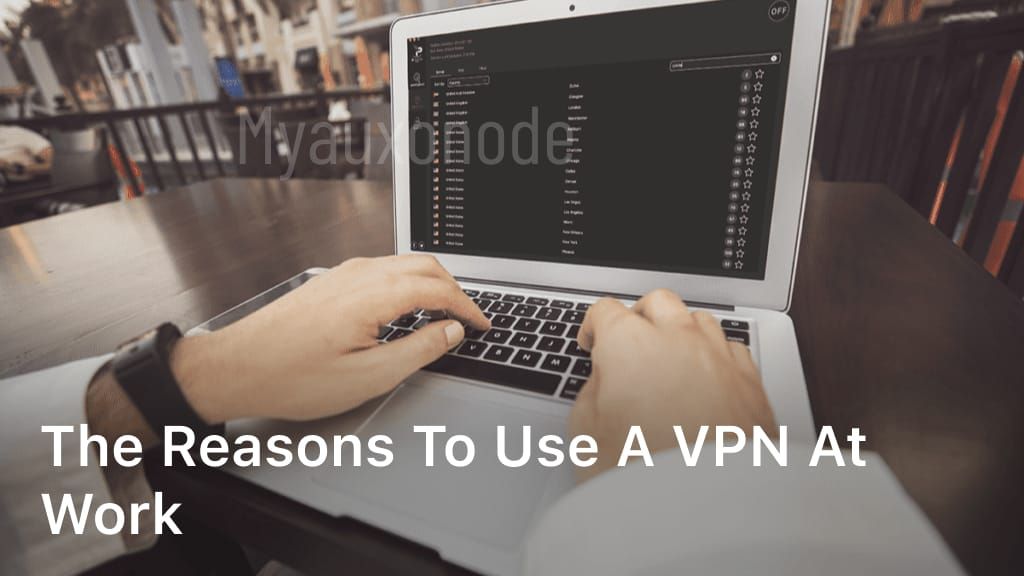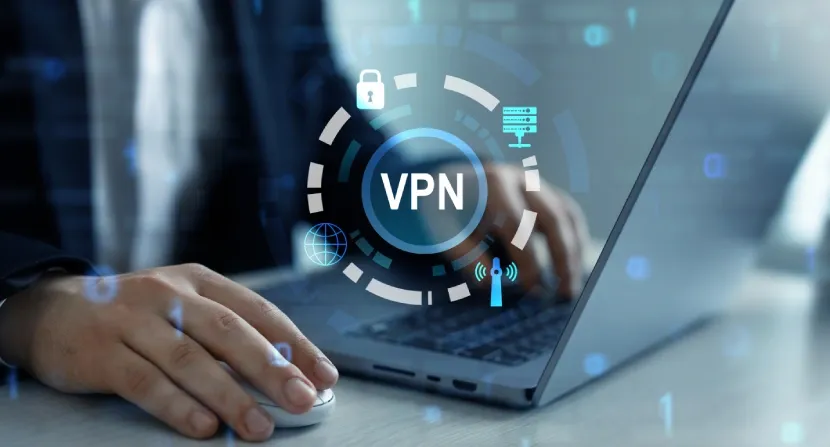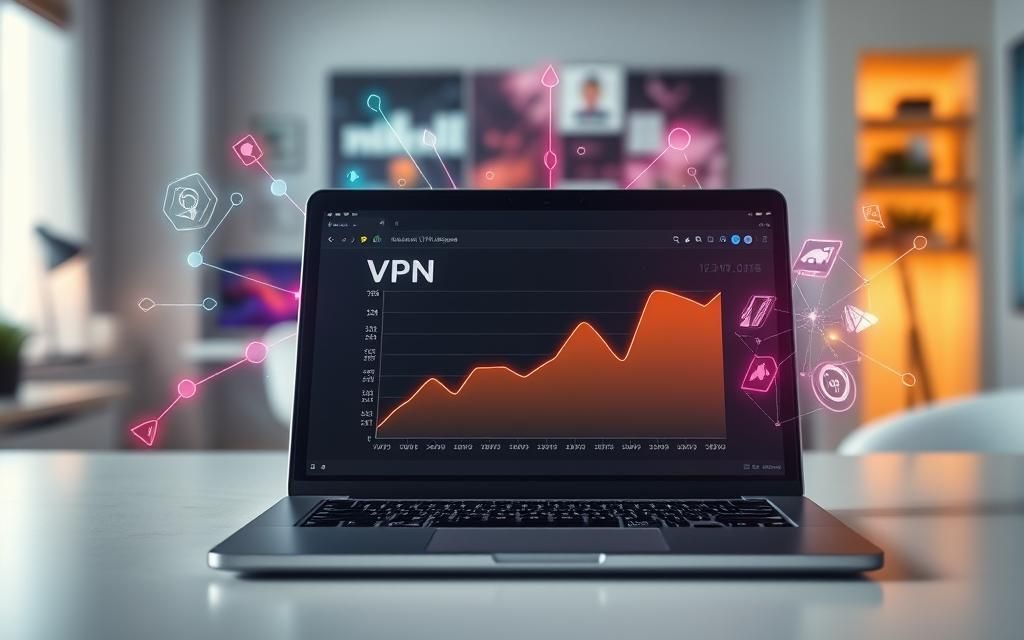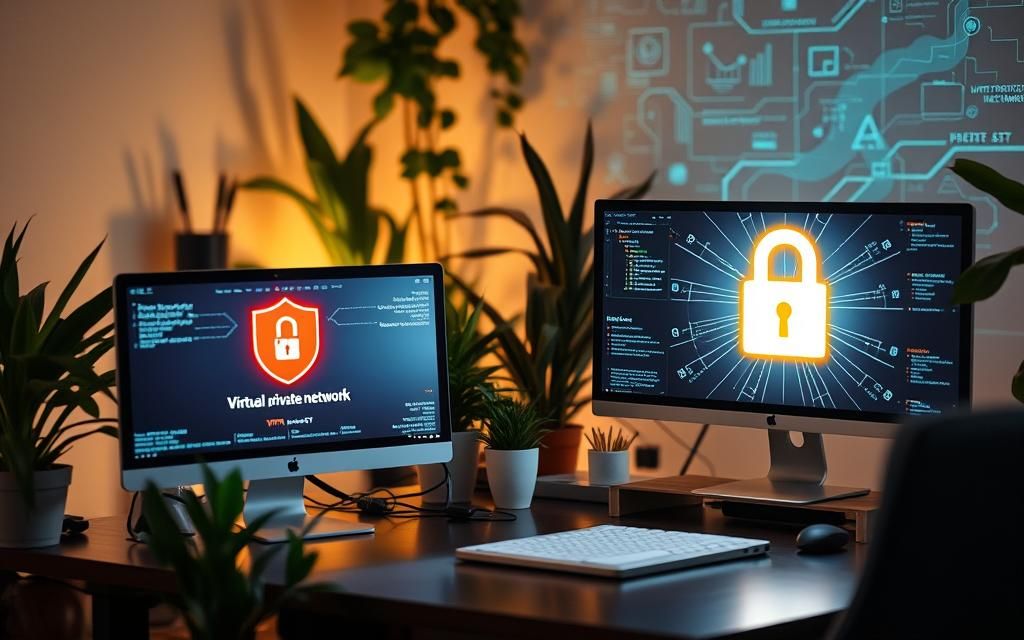Welcome to our guide on the benefits of using a VPN at work. In today’s digital world, where privacy and security are paramount, utilizing a VPN has become essential for businesses and employees alike. By understanding the reasons to use a VPN at work, you can strengthen your online defenses and ensure a safer, more productive work environment. One of the primary advantages of using a VPN is enhanced privacy. A VPN creates a secure and encrypted connection between your device and the internet, shielding your online activities from prying eyes. This means that sensitive information, such as financial data or client details, remains confidential and protected. Furthermore, a VPN enables secure file sharing within your organization. Whether you’re collaborating with colleagues or accessing important company documents remotely, a VPN ensures that your files are transmitted safely and cannot be intercepted by cybercriminals. Speaking of cyber threats, the internet is rife with malicious actors aiming to breach your defenses. By using a VPN, you add an extra layer of protection against cyber threats. A VPN encrypts your internet traffic, making it nearly impossible for hackers to decipher and exploit your data. This safeguard is particularly crucial when working remotely or connecting to public Wi-Fi networks. Finally, using a VPN allows you to access restricted content effortlessly. With sophisticated geo-blocking measures in place across various websites and platforms, having a VPN at your disposal lets you bypass these limitations and access the content you need, no matter where you are located. In conclusion, the benefits of using a VPN at work are numerous. From enhanced privacy and secure file sharing to protection against cyber threats and access to restricted content, a VPN is an invaluable tool for any business. By prioritizing the use of a VPN, you can create a safer online working environment while enjoying the benefits it brings. So, don’t wait any longer—start using a VPN today and experience the peace of mind that comes with being protected. Enhanced Privacy and Confidentiality When it comes to working online, ensuring the privacy and confidentiality of your sensitive information is of paramount importance. By using a VPN at work, you can greatly enhance your online privacy and keep your confidential data protected. A VPN, or Virtual Private Network, establishes a secure encrypted connection between your device and the internet. This encryption prevents anyone from intercepting or accessing your data, thus providing improved online privacy and enhanced confidentiality. One of the key features of a VPN is data encryption. All your online activities, including browsing, file sharing, and communication, are encrypted, making it nearly impossible for unauthorized individuals to decipher or intercept your data. Data Encryption Data encryption is the process of encoding information in a way that only authorized individuals can access it. With a VPN, your data is encrypted using advanced encryption protocols, such as AES-256, ensuring that your online activities and sensitive information remain secure. The encryption process scrambles your data, transforming it into an unreadable format. This ensures that even if your data is intercepted, it cannot be deciphered without the encryption key, which is only available to authorized users. By encrypting your data, a VPN adds an extra layer of security to your online activities, protecting your privacy and confidentiality from potential threats, such as hackers, government surveillance, or cybercriminals. Furthermore, using a VPN at work also prevents your internet service provider (ISP) from monitoring your online activities and collecting your browsing data. This helps maintain your online privacy and ensures that your sensitive information stays private, without being shared or sold to third parties. In summary, utilizing a VPN at work is crucial for enhancing your privacy and confidentiality. The data encryption provided by a VPN ensures that your online activities and sensitive information remain secure, protecting you from potential cyber threats and unauthorized access. Secure Access to Restricted Content When it comes to accessing restricted content while at work, using a VPN can be a game-changer. By connecting to a VPN server, you can bypass geo-restrictions and unlock websites, platforms, and resources that may be off-limits in your current location. A VPN works by encrypting your internet connection, creating a secure tunnel between your device and the remote server. This not only protects your data but also allows you to appear as if you are accessing the restricted content from a different location. For example, if you need to access a website or a streaming platform that is only available in certain countries, a VPN can give you the ability to do so regardless of your actual physical location. With secure access to restricted content, you can stay updated with the latest industry news, access important resources, collaborate on global projects, and gain a competitive edge. Whether you need to access research papers, online courses, or international business communications, a VPN can give you the freedom to explore and utilize valuable content without limitations. Example: Restricted Content Availability Without VPN Availability With VPN Streaming Services Restricted to specific regions Access to content from any location Online Research Journals Limited access based on subscriptions Unrestricted access to valuable resources International Business Communication Difficulties due to regional restrictions Seamless collaboration and communication Protection Against Cyber Threats When it comes to safeguarding your work environment from cyber threats, a Virtual Private Network (VPN) plays a crucial role. A VPN acts as a protective shield for your connection, ensuring that hackers, malicious actors, and cybercriminals are unable to gain unauthorized access to your sensitive data and compromise your work. By encrypting your internet traffic and masking your IP address, a VPN creates a secure tunnel that prevents cyber threats from infiltrating your network. This encryption ensures that even if someone intercepts your data, they won’t be able to decipher it, offering an additional layer of protection against potential breaches. Whether you’re working remotely or accessing sensitive files from a public Wi-Fi network, using a VPN significantly reduces the risk of unauthorized access. It establishes a secure connection between





